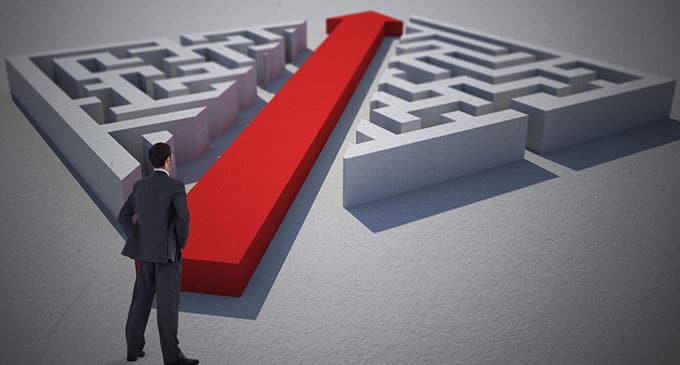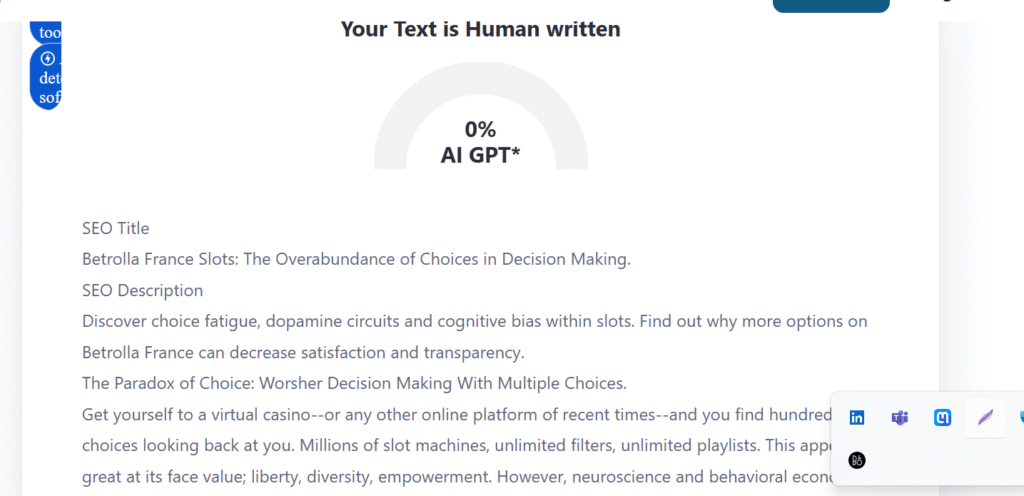
Get yourself to a virtual casino–or any other online platform of recent times–and you find hundreds of choices looking back at you. Millions of slot machines, unlimited filters, unlimited playlists. This appears great at its face value: liberty, diversity, empowerment. However, neuroscience and behavioral economics suggest that it is quite the opposite; in fact, as the number of choices we have increases, we become worse at decision-making. Now here is the paradox of choice.
Learning the Paradox of Choice.
Choice is so free on the surface. You choose the slot, which you are going to play, which film to watch, or what product to purchase next. However, studies have also indicated that there is a certain threshold above which additional choices cause decision fatigue, which in turn results in stress, procrastination, or even avoidance.
This phenomenon is known as the paradox of choice, as developed by psychologist Barry Schwartz. People often believe that an increase in the number of choices will make them happier, but the reverse turns out to be the case. Excessive choice is overwhelming since the brain reacts by causing anxiety and fear of making the wrong choice.
1.1 The Illusion of Freedom
Digital platforms, such as Betrolla France, offer a huge selection of games that cater to all tastes. Although diversity is attractive, our brains may fail to decipher it. Every extra choice comes with a mental strain, and choices become tiresome. Freedom of choice may seem ironic, as it can be a trap.
1.2 stressed out when facing Options.
The problem of decision fatigue is real: when we consider too many options, we make worse choices, regrettable choices, or we put off decisions altogether. This may manifest in minor forms, such as scrolling through the list of games on Betrolla France without ever choosing one. The dopamine loop stimulates action, but it also promotes cognitive bias, where we are influenced to make impulsive or unsatisfying judgments.
The Choice Overload: The Science.
The brain is a wonderful decision-making machine; however, it has limits. The prefrontal cortex must compare the advantages, threats, and likelihoods of the choices —a process that is energy-demanding and utilizes neurotransmitters such as dopamine.
Learners will be taught the neuroscience of decision-making, especially how the brain processes information and produces thoughts.
The brain is not simply choosing a favourite when it is presented with dozens of slot games in front of it; it is performing a myriad of micro-comparisons. Such mental balancing prompts the variable rewards mode: any possible decision promises immediate satisfaction, and the mind is busy but more and more tense.
2.2 Psychological Impact
The consequences? Paralysis in the analysis and anxiety. The greater the number of alternatives that you consider, the less content you become with the final choice. The mind questions even after making a choice: Did I pick the one that is the best? Would another game be better?
The Digital Overload of Choices.
Electronic spaces increase the paradox of choice. Internet casinos, video streaming sites, and e-commerce sites are flourishing online, yet this frequently leads to a cost: lower satisfaction and increased friction in behavior.
3.1 Internet Slots and Gaming Summit.
An example is Take Betrolla France. There are hundreds of different slots available to players with different themes, payouts, and bonus options. The breadth is impressive, whereas the sheer volume may be overwhelming. Players experience a delicate balance between exploration and decision fatigue, a classic example of the interaction between digital interaction and instant gratification.
Platform Stress Level of reported player against slot in the platform, Number of Slots
in the platform
| Platform | Number of Slots | Reported Player Stress Level | Recommendation Complexity |
| Betrolla France | 500+ | High | High |
| Competitor X | 200+ | Medium | Medium |
| Competitor Y | 50+ | Low | Low |
Not only in gambling, the same tendencies can be observed: streaming platforms offer an infinite variety of options, online shops overwhelm us with filters, and applications constantly remind us of their existence. Every place appeals to our dopamine-guided reward systems with its own patterns of behavior.
3.2 Other Digital Choices
The rule is the same: the greater the choices, the less the satisfaction. It is a cognitive load, whether it involves selecting a time slot, streaming a movie, or even subscribing to a service. The abundance of choices promotes hasty choices, hedonic errors, and the anxiety of the invisible fear of regret upon making another choice.
Expert Insights
Theorists of human behavior and digital addictions focus on the psychological price of excess choice. These patterns are important to identify, even for more experienced digital gamblers.
4.1 Managing Choice Overload
Simplification is one of them: reduction of choices, establishment of personal standards, or changing favorites. By sorting options, recommending, or pointing out what has already been tried and tested, platforms can assist in reducing cognitive load while keeping attention on the platform.
4.2 Digital Platform implications.
In the case of websites such as Betrolla France, variety and usability should be a major consideration. Excessive choices without directions may ruin the user experience. Considerate option design- the manner in which the options are offered, grouped, or suggested- can enhance satisfaction without reducing interest.

